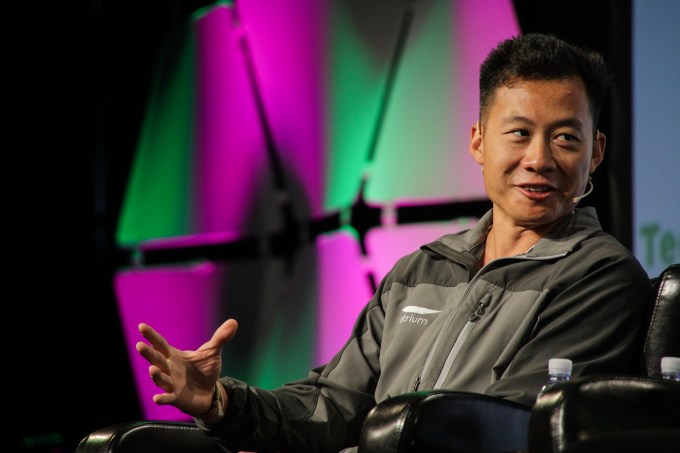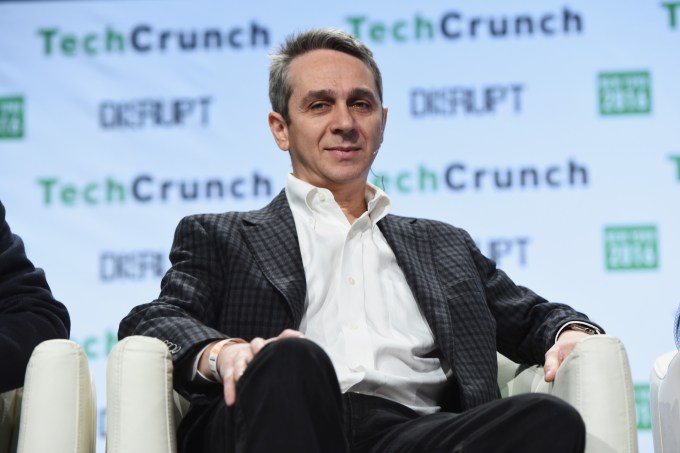 |  | | Wednesday, February 05, 2020 • By Walter Thompson | |
| |
| |  Image Credits: REB Images / Getty Images | | This month, Insurify raised a $23 million Series A. And even more recently, Gabi, a competitor, raised $27 million. The two rounds added up to $50 million for the insurance marketplace startup space in less than two weeks. But there was more to come. Policygenius added $100 million to its accounts, bringing the total venture tally for insurance marketplace startups to $150 million for the month of January. Why has so much been invested in the space recently? Read more | | | |
| |  | | In the second half of his interview with Justin Kan, Greg Epstein and his subject explore Buddhist philosophy; atheism/secularism/humanism; and the potential dangers of mindfulness, the real source of morality and what a spiritual approach to tech startups has to say about problematic capitalism. Read more | | | |
| |  Image Credits: UKBlackTech | | When Uber and Lyft went public, it wasn't the drivers who got rich — it was the executives, investors and some early employees. In an era when it has become clear that tech executives and investors are frequently the only ones who'll reap rewards for a company's success, cooperative startups are getting more attention. Depending on how it's set up, a cooperative model offers workers and users true ownership and control in a company; any profits that are generated are returned to the members or reinvested in the company. Read more | | | |
| |  Image Credits: lkercelik / Getty Images (Image has been modified) | | Europe leads every other region when it comes to the number of Nobel laureates it has produced in chemistry, medicine and physics, but if you rank universities by the amount of VC investment secured by startups founded by their graduates, the top of the table takes on a distinctly American flavor. Read more | | | |
| |  | | Nigeria has become a magnet for venture capital, a hotbed for startup formation and a strategic entry point for Silicon Valley. As a frontier market, there is certainly a volatility to the country's political and economic trajectory. The nation teeters between its stereotypical basket-case status and getting its act together to become Africa's unrivaled superpower. The upside of that pendulum is why — despite its problems — so much American, Chinese and African tech capital is gravitating to Nigeria. Read more | | | |
| |  Image Credits: Flashpop / Getty Images | | Senior citizens are not early adopters of new technology; many of our 65+ friends and family might not use much tech in the first place. That said, two-thirds of America's 50 million seniors use the internet and more than 40% own a smartphone, according to a 2017 Pew study. So where's the disconnect? Why are modern software companies largely non-compatible with one of the nation's largest demographics? Read more | | | |
| |  Image Credits: Bloomberg / Getty Images | | These verticals have been the key focuses of robotics investments: warehouse automation/fulfillment, construction, retail/food, agriculture and surgical/medical. The categories qualify for one or more of what roboticists call the three Ds: dull, dirty and dangerous. These are the jobs employers often continue to have trouble staffing, even during times of high unemployment. For that reason, they're precisely the ones companies are seeking to automate — and that's certainly the line technologists will use to push back on any concerns over robots displacing humans from jobs. Read more | | | |
| |  | | Some industry minds believe we're in the early innings of the SaaS takeover of enterprise software. Alex Niehenke, a venture capitalist with Scale Venture Partners, in contrast, noted that the transition from on-premise software to the cloud has already gone back years. Considering his own career, the idea of packaging software into a cloud and SaaS product was "still controversial" when he joined Scale seven years ago. Looking back 20 years, the "whole notion of doing things in the cloud was borderline crazy," he says. Read more | | | |
| |  Image Credits: Noam Galai / Stringer / Getty Images | | Last week at the Upfront Summit in Pasadena, there was no shortage of glitz, from the venue (the Rose Bowl) to the catering (Wolfgang Puck) to the guest list (Ice Cube, Paris Hilton and John Legend, to name just a few). Still, there were also plenty of sessions that provided the investors and founders in the audience practical advice, including, notably, a session led by Upfront co-founder Mark Suster, who interviewed his longtime peer Josh Kopelman of First Round Capital. The topic was how to raise a debut venture fund — as well as keep the whole operation afloat over time. The bottom line, suggested Kopelman, is that it's a lot harder than it looks. Indeed, according to other investors at the event with whom we chatted, the seed and early-stage funding environment has grown especially brutal. As more debut funds have sprung up on the scene, more established firms have begun throwing elbows. Read more | | | |
| |  Image Credits: Calm | | Mental wellness unicorn Calm has more than two million subscribers to its mindfulness and meditation app, raising over $140 million in funding to bring "mental fitness" practices into the daily lives of mainstream consumers. Anchored in a range of audio courses, the company has expanded to video and even book publishing. In a recent conversation with co-founder/co-CEO Michael Acton Smith, we dug into the company's strategy and the case study it can provide to other entrepreneurs. Read more | | | |
| |  Image Credits: Joe Raedle / Getty Images | | Last year saw new records set regarding the size and number of investments in space tech, and a fair amount of those funds went to launch startups. There are more still coming online, including more than a few that plan to begin flight testing this year, which begs the question: Where will these spacecraft and launch vehicles take off from? Read more | | | |
| |  Image Credits: Jeffrey Coolidge / Getty Images | | In the rush to rapid growth, it can be easy to get caught up in what's next, like the next new layout, feature launch or product release — the next thing that will make users happy. Equally important to keep in mind — really, more important — is what makes users mad: getting hacked. Read more | | | |
| |  | | Romain Dillet interviewed N26's Chief Product Officer Georgina Smallwood about how she leads product at one of Europe's biggest consumer startups. In this wide-ranging discussion, they talked about her role in the organization, how the product and design team communicates and how she finds inspiration for game-changing ideas. Read more | | | |
| |  Image Credits: Sergio Amitit / Getty Images | | Apple’s long-running policy of not preloading third-party software onto its devices is coming up against a new piece of Russian legislation requiring every smart device to be sold with certain applications already installed, many of which are produced by the government. Inside the country, the policy has even been called the zakon protiv Apple, or the "law against Apple," for how it disproportionately affects the tech giant. While the law was passed last November, the Russian Federal Antimonopoly Service released the full list of apps only last week. Read more | | | |
| |  | | Alex Wilhelm rewinds through Asana's fundraising and valuation history, then mixes in what he learned about its financial performance, growth rates and capital efficiency to see how much we can tell about the company as we count down to its public S-1 filing. “The Asana flotation is going to be big news, so let's get all our facts and figures straightened out,” he writes. Read more | | | |
| |  Image Credits: The New York Public Library on Unsplash / | | Everyone wants to lend to small businesses, as the fintech boom continues to bring constituent players closer together in feature-terms. Thinking broadly, the rising focus on small-business lending amongst B2B fintech and finservices companies feels directionally similar to the rise of consumer-oriented fintech startups adding banking-like features last year. Read more | | | |
| |  Image Credits: Richard Drury / Getty Images | | I'm a software developer at a large company. I just found out that I'm getting laid off and my last day of employment will be in 30 days. I have an H-1B visa that just got renewed, so it's valid for almost three more years. I need to stay in the United States because my wife has her own H-1B and a great job that she loves, we have a U.S. citizen baby and we bought a house last year. I'm starting to look for jobs. What should I do from an immigration standpoint? — Nervous in New Haven Read more | | | |
| |  | | Early-stage European VC firm Blossom Capital is fresh from closing a $185M fund — a big jump up on its prior close. The firm makes just a handful of investments per year, mostly at the Series A stage, working very closely with founders in its portfolio, a strategy it refers to as "high conviction" investing. We chatted with Blossom Capital partner Louise Samet, who led the fund's investment in Inne, to get the inside track on that deal and further understand how the fund thinks about femtech. Read more | | | |
| |
| |
| |
| |